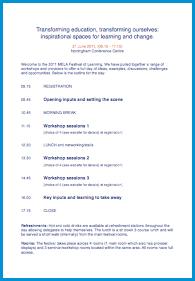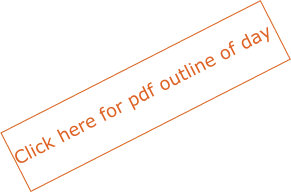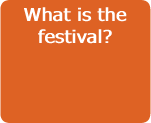 |
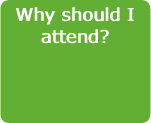 |
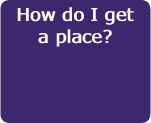 |
 |
|||||
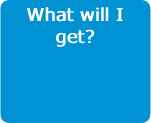

PROGRAMME
09.15 - 17.15
This page shares the programme as it currently stands. It will be updated as information is finalised and details are received. Check back for updates.
Confirmed festival contributors include:
CLADA (Co-operative Learning and Development Associates)
Link Community Development
Growing Global (Village Aid)
Global Learning for Community Cohesion
Schools Linking Network
Oxfam
University of Leicester (School of Education)
Sustainability and Environmental Education
Development Education Centre (South Yorkshire) - DECSY
MUNDI
Leicester Masaya Link Group and GELS
Leicester Botanical Gardens
Lifeworlds Learning
Sustainable Schools East Midlands
Bringing a global dimension and P4C into SEAL (Social and Emotional Aspects of Learning)
Fundraising in Schools – can it enhance learning?
Understanding motivation for inspired learning in school partnerships
Global Learning for Community Cohesion(GLCC): 'Time 2 Think'
Beyond Labels: Tackling Discrimination and Controversial Issues
Exploring the themes of ‘Religion and Planet’ using museum artefacts and Philosophy for Children (P4C) methodology.
Where next for Sustainable Schools? support and inspiration for your ESD journey.
Thinking critically about the world through drama
Leading innovation in schools for the future: collaborative creativity and sustainable hope
Bringing a global dimension and P4C into SEAL (Social and Emotional Aspects of Learning)
Rob Unwin, Development Education Centre (South Yorkshire)
KEY QUESTIONS/ISSUES
How does the global fit into personal and social education?
What are the potential benefits and pitfalls in using philosophy for children in this area of the curriculum?
The workshop will illustrate how a global dimension can be brought into SEAL and will introduce ready to use, downloadable materials from the recent SEAL and the Global Dimension project. Participants will have an opportunity to experience a philosophical enquiry provoked by a stimulus used in the SEAL-GD project and then will be encouraged to reflect on the benefits for learning of using enquiry-based dialogical approaches to engage children with globally important concepts and issues.
-------------------------------
Alex Kosogorin, MUNDI
KEY QUESTIONS/ISSUES
Power and powerlessness, Participation and Reflection
Today's world is more and more interconnected through continuing globalisation with ever faster access to media, communication and transport possibilities, international migration of people and capital, and the impact of climate change. However, while there is increased interconnectivity and interdependence, there has not necessarily been a corresponding increase in understanding of or solidarity between people.
This increased connectivity and faster access to a wide variety of media has made people more aware than ever before of the stark local and global inequalities regarding access to healthy food, clean water, healthcare, travel, housing, education and life opportunities. In turn, this increased awareness of inequalities has, at times, caused a sense of powerlessness and a perceived inability to effect change and/or participate in decision making processes.
This participative workshop aims to provide time for participants to reflect on and critically discuss these issues and also raise ideas for responsible action that can contribute to the reduction of inequalities and the promotion of sustainable development by utilising approaches and activities that are based on values of human rights, social responsibility, equality and a critical understanding of the reasons for local and global inequalities. There will be opportunity to reflect on how activities within the session can be used within the classroom and/or lecture hall.
-------------------------------
Fundraising in Schools – can it enhance learning?
Richard P King, Oxfam
KEY QUESTIONS/ISSUES
For teachers to understand how to ensure learning is at the heart of any fundraising project.
To consider the ethical and practical implications of fundraising.
How can we ensure that fundraising with young people enhances the learning experience, is based on critical thinking, informed-action and decision making putting learner’s participation at the heart of the work?
This workshop will look at how we engage young people in Fund-raising activities, consider what ‘best-practice’ is and explore models and projects.
-------------------------------
Understanding motivation for inspired learning in school partnerships
Catherine McKenna/ Madeline Bain/ Natalia Battistini, Link Community Development
KEY QUESTIONS/ISSUES
To present the findings of our research to consider the impact school linking has on rural African schools (in Masindi, Uganda)
To discuss the key findings with delegates
To use the key findings to plan a successful partnership for both partners, impacting on educational development and on development education
We know that a school partnership with an African school can bring a global dimension to your curriculum. But what motivates a rural African school to work in partnership? Gaining an understanding of this motivation could help you to support school development and could form the basis of some exciting global learning. Join us to hear the findings of a key piece of research into the impact of school linking on schools in the Masindi District, Uganda. We will discuss what this means for global learning in our schools, and design an inspiring way forward for African school development, global learning and school linking.
-------------------------------
Global Learning for Community Cohesion(GLCC):
'Time 2 Think'
Linda Ramirez Barker, GLCC Project Manager
KEY QUESTIONS/ISSUES
How can teachers approach identity and equality work, with a global learning focus?
What are the challenges of encouraging ‘deeper thinking’ in the classroom?
How can teachers be supported to think the issues through during CPD?
Introduce the new Time 2 Think website (building on Open Spaces for Dialogue and Enquiry (OSDE) methodology)
This workshop will share hot-off-the-press web resources aimed at supporting teachers wishing to explore community cohesion / identity issues, with a global focus. These resources have emerged from a partnership between the Global Learning for Community Cohesion project and Lifeworlds Learning and build on the well respected Open Spaces for Dialogue and Enquiry methodology.
All resources will be free-to-download from the project website from September 2011. Participants will have the opportunity to experience a variety of activities, for the classroom and for reflective CPD, and to get a sneak preview the new website materials.
-------------------------------
Beyond Labels: Tackling Discrimination and Controversial Issues
Lee Scholtz
KEY QUESTIONS/ISSUES
To discuss issues that we find difficult to tackle in schools.
To explore ways of addressing and tackling discrimination.
To explore how we can support teachers to feel confident when dealing with unlawful, unacceptable, and hurtful experiences by young people because of discrimination
In this workshop we will explore the meaning and possible barriers of difference, diversity and inclusion. We will also provide suggestions for creating constructive spaces for critical engagement, dialogue and reflective practice.
-------------------------------
Exploring the themes of ‘Religion and Planet’ using museum artefacts and Philosophy for Children (P4C) methodology.
Clare Carr and Madeleine Coburn
KEY QUESTIONS/ISSUES
How can we give learners access to valuable local resources, and create opportunities for learners to explore the resources and set their own learning agenda?
This practical workshop uses artefacts reflecting different faiths and cultures from around the globe, lent by the Arts and Museums Outreach Service based Leicester. Workshop participants will be handling the objects and taking part in activities used with Year 10 students at New College, Leicester to develop their observation, reflection and questioning skills. We will examine a unique and precious Jain cloth together, using it as a stimulus to develop our own questions around the themes of ‘Religion and Planet’.
-------------------------------
Where next for Sustainable Schools? support and inspiration for your ESD journey.
Schools Working Group of UN Regional Centre of Expertise in Education for Sustainable Development (ESD)
KEY QUESTIONS/ISSUES
With official support for sustainable schools in decline, but an increasing recognition of the importance of ESD to young people, what support is available to schools and other learning communities?
This workshop will showcase some of the support that is available for schools interested in starting, or continuing their journey in education for sustainable development. It will be presented by members of the schools working group (SWG) of the UN recognised Regional Centre of Expertise in this vital area. You will be able to learn more about past and ongoing work and find out how members of the SWG can support you as well as how you could become part of this important local group.
-------------------------------
Thinking Critically about the World through Drama
Helen Hunter
KEY QUESTIONS/ISSUES
How can educational drama be used to help pupil’s think critically about global issues?
What was the ‘learning’ from a 3 year project, ‘Growing Global’ offering drama based initiatives to rural and small schools through a Theatre-in-Education tour, INSET, CPD, web-communication and teacher resources?
Drama is a powerful learning medium for stimulating critical thought and enquiry about the world. Based around our experiences from a 3 year project ‘Growing Global’ and a number of practitioner research enquiries, this workshop will reflect on the learning whilst actively engaging participants by using drama techniques that tackle the global curriculum and encourage critical thinking. Brush up on your own skills, share ideas and re-discover the fun in learning through drama!
-------------------------------
Leading innovation in schools for the future – collaborative creativity and sustainable hope
Kate Nash and Paul Warwick
KEY QUESTIONS/ISSUES
What are our visions of schools that are engaging and apt for the 21st century?
How can we move towards creating such learning spaces for our children?
This workshop considers how we might strengthen the capacity of schools to improve the life chances of all children and to provide relevant and essential learning opportunities for their futures. It explores new ideas and ways of leading schools to raise the quality of education, drawing in particular from the pioneering work conducted at Silverhill Primary School in Derbyshire and also the educational charity Human Scale Education. It also explores how we can listen to the voices of children and staff in our schools as we envision change.
This workshop will provide opportunity for conversation and networking amongst participants to share ideas and enjoy learning from each other.
* all workshops are subject to changes beyond the control of the Festival organisers. We will do all we can to keep this listing as up to date as possible.
Workshop outlines* - scroll down to see all confirmed workshops. Click title for shortcut more to follow!

